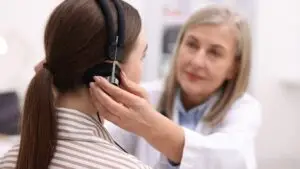Queens moves fast. Between long commutes, shifting work schedules, and the everyday logistics of caring for family, it can be hard to find the time, privacy, and energy to ask for help, especially when the help you need is for your mind and your mood. Over the past few years, New York has seen a steady rise in demand for mental health and addiction care, and Queens is no exception. Queens Telehealth Services is closing that gap by bringing skilled support to you, secure video or phone sessions that fit around real schedules without the hassle of travel. Anxiety and depression have become more visible, stress has become more constant, and access has become the make-or-break factor for many people who want support but can’t step away from real life to get it. Add in the growth of gambling and the easy availability of substances, and you have a community that needs services that are both skilled and simple to reach.
Barriers are real and they’re not just about money. Transportation can turn a one-hour appointment into a half-day ordeal. Childcare or eldercare can be tough to coordinate. Stigma still whispers that therapy is only for a crisis, or that asking for help means you’re “not strong enough.” We reject those myths. In our experience, the strongest people are the ones who choose support early so small problems don’t become big ones. And we’ve learned that when care is easier to access, people use it more consistently, and they get better faster.
That’s why telehealth matters. In Queens, telehealth for outpatient counseling has done more than move sessions to a screen; it has expanded access in a way that respects people’s lives. You meet with a licensed clinician from home or a private space, you keep your work and family routines intact, and you receive the same evidence-based care you would in person. At Bleuler Psychotherapy Center, we’ve leaned into this model because it helps our neighbors in Queens get consistent, confidential, and professional help without the heavy logistics that used to stand in the way.
What Telehealth Services Offer for Mental Health and Addiction Support?
When we say telehealth in the context of counseling, we mean a secure, HIPAA-compliant way to connect with your therapist by video or phone for scheduled appointments. As part of Queens Telehealth Services, this can include one-to-one psychotherapy sessions, consultation calls, and carefully facilitated online groups that mirror the structure and ground rules of in-person group therapy. For some clients, telehealth also looks like blended care: periodic in-person sessions to establish rapport and practice certain skills, paired with Virtual Therapy check-ins that keep momentum when life gets busy.
Telehealth is not a different kind of therapy; it’s a different doorway to the same room. We use the same assessment tools, the same clinical frameworks, and the same ethics and standards that guide our in-person work. What changes is the accessibility. You log in from a quiet room, and we meet you there with a plan that fits your week. For Queens residents who juggle shift work, school schedules, or multiple jobs, that flexibility can be the difference between starting therapy now and postponing it indefinitely.
Most importantly, telehealth is an extension of outpatient care. You are not “admitted” anywhere; you remain at home, in your routine, and you apply skills in real contexts, right after a tough meeting, before a difficult conversation, or in the middle of a stressful week. That proximity to real life is a strength. It lets us adapt your plan quickly based on what actually happens between sessions.
Benefits of Telehealth for Queens Residents
The first benefit is access. With Queens Telehealth Services, cutting out the commute means therapy fits into a lunch break or the hour before school pickup. For people with mobility challenges or chronic health conditions, telehealth removes a physical barrier and turns therapy into a realistic option rather than another draining errand. For caregivers, it’s often the only way to get support without arranging (and paying for) backup care.
The second benefit is privacy. Queens is vast, but neighborhoods can feel small. We hear from many clients that they delayed therapy because they didn’t want to run into a neighbor in a waiting room. Telehealth reduces that friction. You choose your space, you choose your device, and you choose who knows you’re in therapy. That discretion helps people get started sooner and stick with care longer.
The third benefit is continuity. Life is unpredictable. A child gets sick; a meeting runs long; the 7 train stalls. Outpatient telehealth helps you keep your appointments with fewer cancellations and less time lost to logistics. Consistent attendance is more than a scheduling win; it’s a clinical one. Therapy works best when sessions build on each other, when skills are practiced week to week, and when you feel the steady accountability of a plan that doesn’t evaporate when the calendar gets messy.
Addressing Mental Health Needs Through Telehealth
Telehealth is highly effective for many of the concerns we see most in Queens: anxiety that spikes at night, depression that saps energy during the day, stress that shows up as irritability or insomnia, and trauma-related symptoms that disrupt concentration and connection. In a virtual session, we can still do the core work: slow down your internal experience, name what’s happening, practice skills that regulate your body and reorganize your thoughts, and design routines that support steadier days.
We rely on Cognitive Behavioral Therapy (CBT) because it’s structured, measurable, and easy to adapt to virtual sessions. CBT helps you notice the link between a triggering event, the thought it sparks, the emotion that follows, and the behavior that comes next. Once you can see the pattern, you can change it, often in small steps that add up quickly when practiced daily. We also use Motivational Interviewing (MI) to work through ambivalence. You might want to feel better and also feel nervous about changing habits that have become familiar. MI respects both sides and helps you choose goals that align with your values so your motivation stays yours, not borrowed pressure from anyone else.
Telehealth upholds the same professional standards as in-person outpatient counseling. Sessions are private and confidential; treatment plans are personalized and documented; outcomes are tracked so you can see progress. For clients who may benefit from medication evaluation or monitoring, we will, with your consent, coordinate with external Psychiatric Services so your therapy and any medical care are aligned. Our role is to keep your care coherent and outpatient-first, regardless of whether you meet us in person or online.
Supporting Addiction Recovery with Telehealth Services
Addiction recovery in Queens doesn’t always require stepping away from your life. For many, the right starting point is structured, weekly outpatient counseling delivered in a way that fits real schedules. Queens Telehealth Services strengthen that model by making it easier to show up consistently and practice coping skills in the exact environment where urges appear, at home, after work, on weekends, or whenever stress climbs.
Strengthen Your Relationship Today
Take the first step toward a healthier, more fulfilling partnership. Speak with one of our specialized couples therapists in Queens.
If gambling has become more than a hobby or if substance use is complicating your days, we’ll create a plan that’s both compassionate and practical. We’ll identify triggers, set clear boundaries around access, and build relapse prevention steps you can use the same day, urge-surfing when the impulse hits, breathing and grounding tools for rapid regulation, and “if-then” routines for high-risk windows like paydays or big games. Telehealth lets us review those moments in near real time and refine your plan quickly so you spend less time stuck and more time moving.
Bleuler Psychotherapy Center provides outpatient addiction counseling; we do not offer inpatient or residential rehab. For clients dealing with substance use, our Substance Use Counseling and Substance Use Group Counseling are available through our Forest Hills location and via telehealth/Virtual Therapy. When clinically appropriate, we collaborate with external medical providers for Medication-Assisted Substance Use Treatment and coordinate those recommendations with your therapy so your care remains cohesive. If money stress is part of your recovery work, and it often is, we are transparent: we do not provide financial counseling in-house. We will recommend trusted external financial counseling resources and, with your permission, align their budgeting and debt-repair plans with your therapeutic goals so both tracks move in the same direction.
The Importance of Local Outpatient Care in Queens
Telehealth expands access, but where that access comes from still matters. Working with a Queens-based outpatient center gives you clinicians who understand local rhythms, shift work, school calendars, neighborhood stressors, and the specific ways gambling or substance cues surface here. That context helps us design plans that are realistic on your block, not just on paper. It also means you can blend care as needed: begin online for convenience, come in for occasional in-person sessions to practice certain exercises, then return to Virtual Therapy when your week demands it. Flexibility isn’t a nice-to-have; it’s the mechanism that keeps therapy attached to your real life.
Telehealth doesn’t replace the therapeutic relationship; it strengthens it by increasing contact and reducing missed sessions. Trust grows when you see your therapist regularly, when your goals are revisited often, and when adjustments are made the moment something in life changes. We find that clients in Queens who combine local knowledge with telehealth convenience stay engaged longer, complete more of their plans, and feel more ownership over their progress.
And because we are squarely outpatient, you won’t be asked to choose between getting help and keeping your responsibilities. You can be a parent, a student, a caregiver, a shift worker, and still be a person in therapy who is actively improving your mental health and recovery skills. That identity shift is powerful. It tells your nervous system: “We can do hard things without pausing life to do them.”
What a Telehealth Journey Can Look Like?
Your first telehealth visit feels a lot like your first in-person visit, minus the travel. We complete a thorough intake to understand your history, your current stressors, your supports, and your strengths. We set goals in your words so the plan feels like it belongs to you. Then we choose a session cadence that fits your bandwidth and your needs. We might meet weekly at the start and taper as skills take root; we might add brief check-ins during high-risk seasons; we might schedule combined individual and online group sessions if that structure fits your recovery style.
Between sessions, you’ll practice. That’s where growth happens. You’ll try a new thought pattern when anxiety flares; you’ll use a breathing sequence when cravings rise; you’ll change a tiny piece of your routine so a habit loses its automatic path. Then you’ll bring those experiences back to therapy so we can refine what’s working and troubleshoot what isn’t. If a lapse happens, missing a coping step, placing a bet, or using when stressed, we won’t shame you. We’ll analyze the sequence, patch the gap, and get you back on plan. Telehealth lets that repair happen quickly, before discouragement sets in.
For many clients, we also coordinate care. With your permission, we’ll communicate with outside clinicians providing Psychiatric Services or medical care so medication guidance, sleep recommendations, and therapy strategies line up. If you’re using Substance Use Counseling or Substance Use Group Counseling through our Forest Hills team or via telehealth, we’ll integrate those sessions into your overall plan so nothing feels disconnected.
Building Skills that Last, Even After the Camera Turns Off
The goal is not to be good at therapy; the goal is to be good at living. In telehealth, we teach skills you can use when the camera is off and your day is loud. You’ll learn to spot early warning signs that your stress is rising or your thinking is bending toward old patterns. You’ll build a relapse prevention plan that isn’t theoretical; it’s in your notes, on your phone, and rehearsed in session so you can run it automatically when you need it. You’ll practice communication that repairs relationships instead of inflaming them, and you’ll assemble a support network that fits your personality, whether that’s a small circle of trusted friends or a structured group where everyone is doing similar work.
We treat identity and routine as clinical levers. If evenings used to belong to anxiety, doom-scrolling, or betting apps, we’ll help you replace that time with activities that align with your values: a class, a hobby, a workout, a volunteer shift, or quiet time that truly restores you. Skills stick when they’re tied to meaning, not just willpower. Telehealth gives you the chance to test those choices in the exact spaces where you live, which accelerates learning and strengthens confidence.
Conclusion: Expanding Access with Bleuler Psychotherapy Center
Telehealth is transforming access to mental health and addiction support in Queens by making outpatient therapy more convenient, more consistent, and more aligned with real life. You don’t have to choose between getting help and keeping your responsibilities. You can do both, and you can start sooner than you think. With secure video or phone sessions, flexible scheduling, and the same evidence-based care you’d receive in person, telehealth removes the logistics that used to block the first step and the next one.
We provide outpatient counseling only; we do not offer inpatient or residential programs. If addiction is part of your story, our Substance Use Counseling and Substance Use Group Counseling are available through our telehealth/Virtual Therapy so you can receive integrated care without leaving your life. When clinically indicated for substance-related needs, we collaborate with external medical providers for Medication-Assisted Substance Use Treatment and coordinate with your existing or referred Psychiatric Services to keep your plan cohesive. If finances are adding stress, we are transparent: we do not provide financial counseling in-house; we will recommend trusted external financial counseling resources and, with your consent, align those supports with your therapeutic goals.
If you’re ready to explore a flexible, professional path to feeling better, we’re ready to meet you where you are, on your calendar, in your home, and inside your real life. Visit us to learn more or to schedule an outpatient telehealth consultation. If you’re in immediate danger or experiencing a crisis, call 911 or 988 (Suicide & Crisis Lifeline); we are not an emergency service. When you’re safe and ready, reach out. Together, we can build steadier days, clearer thinking, and the kind of recovery that lasts, even after you close the laptop.







